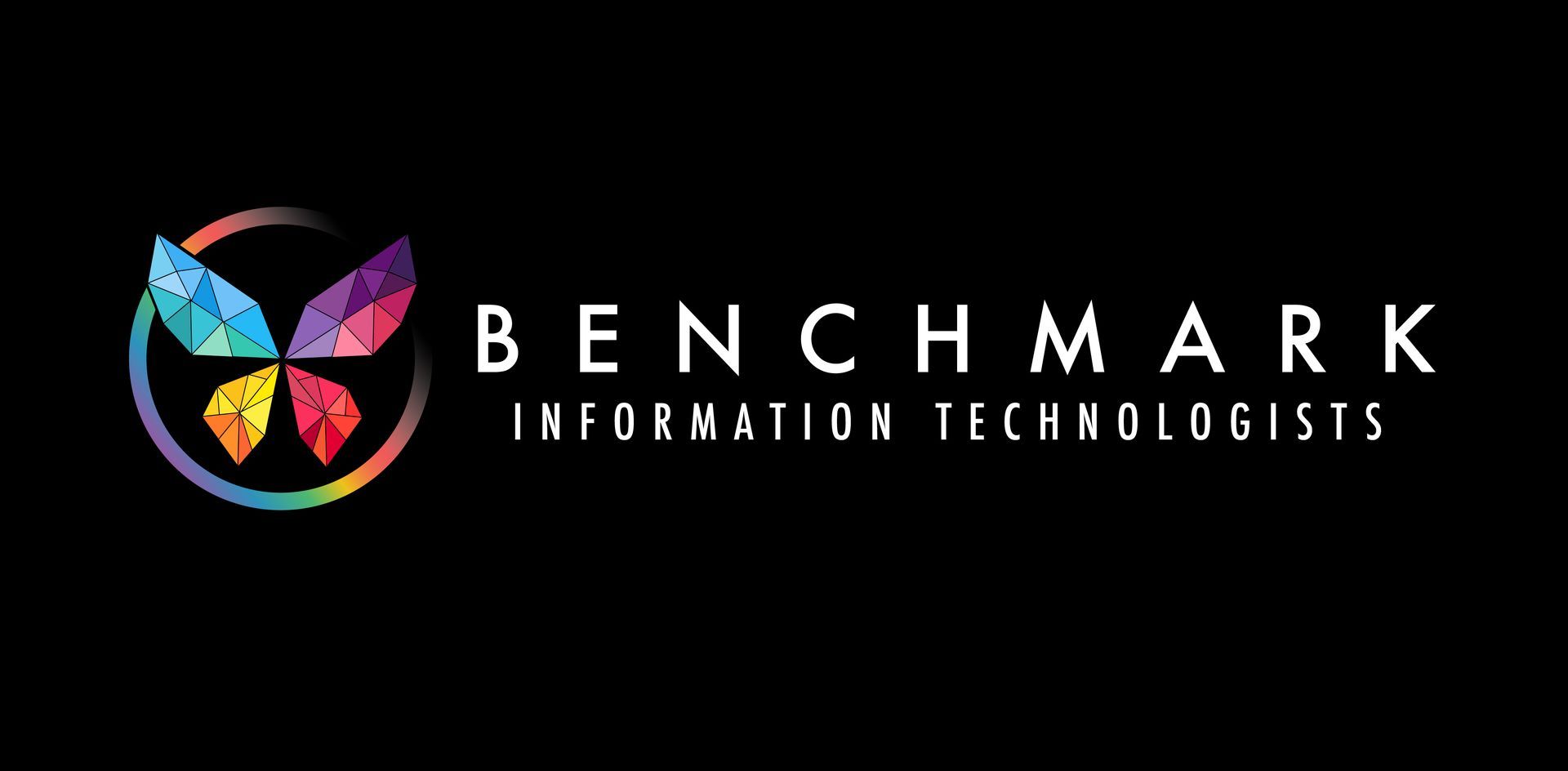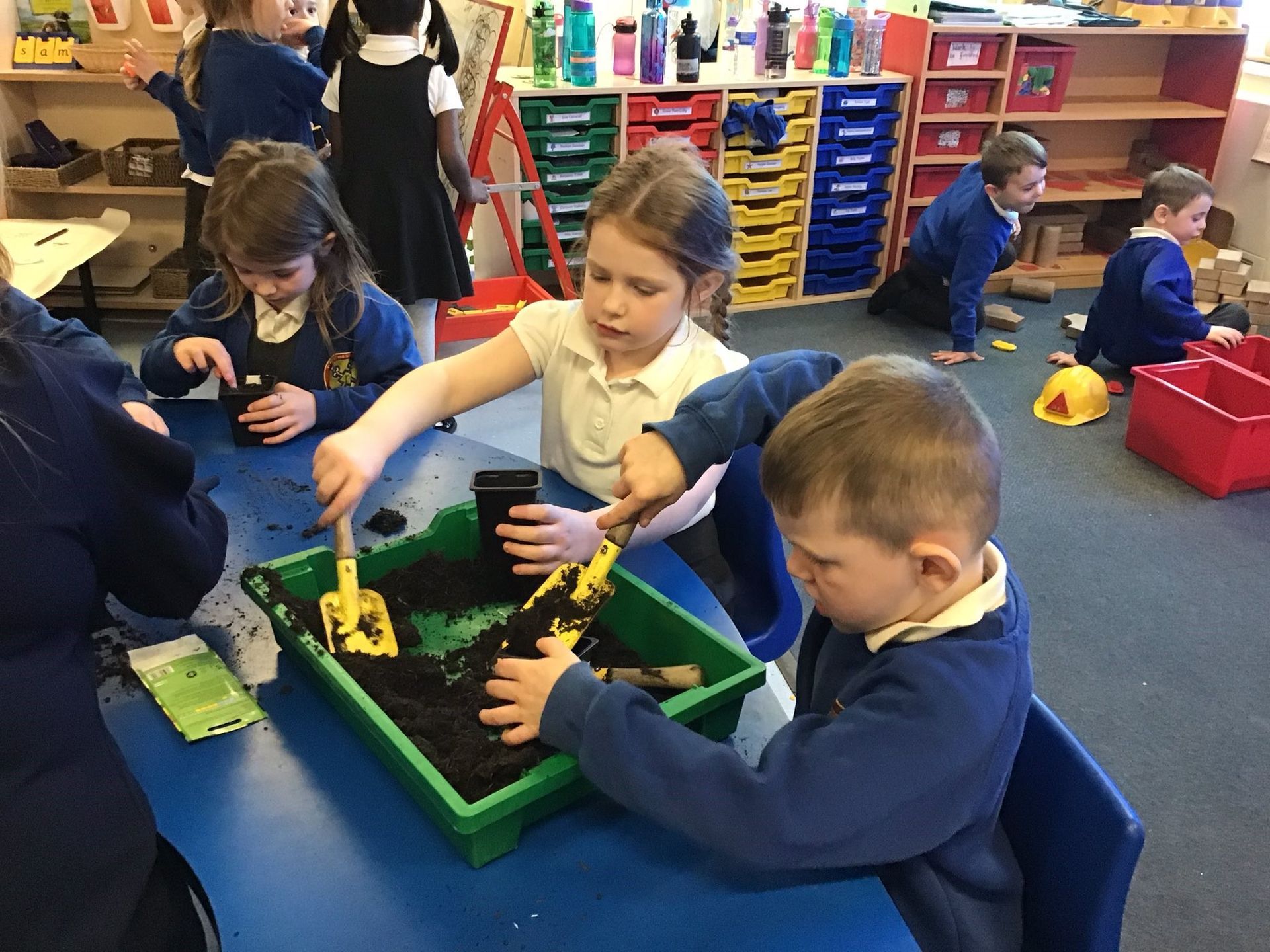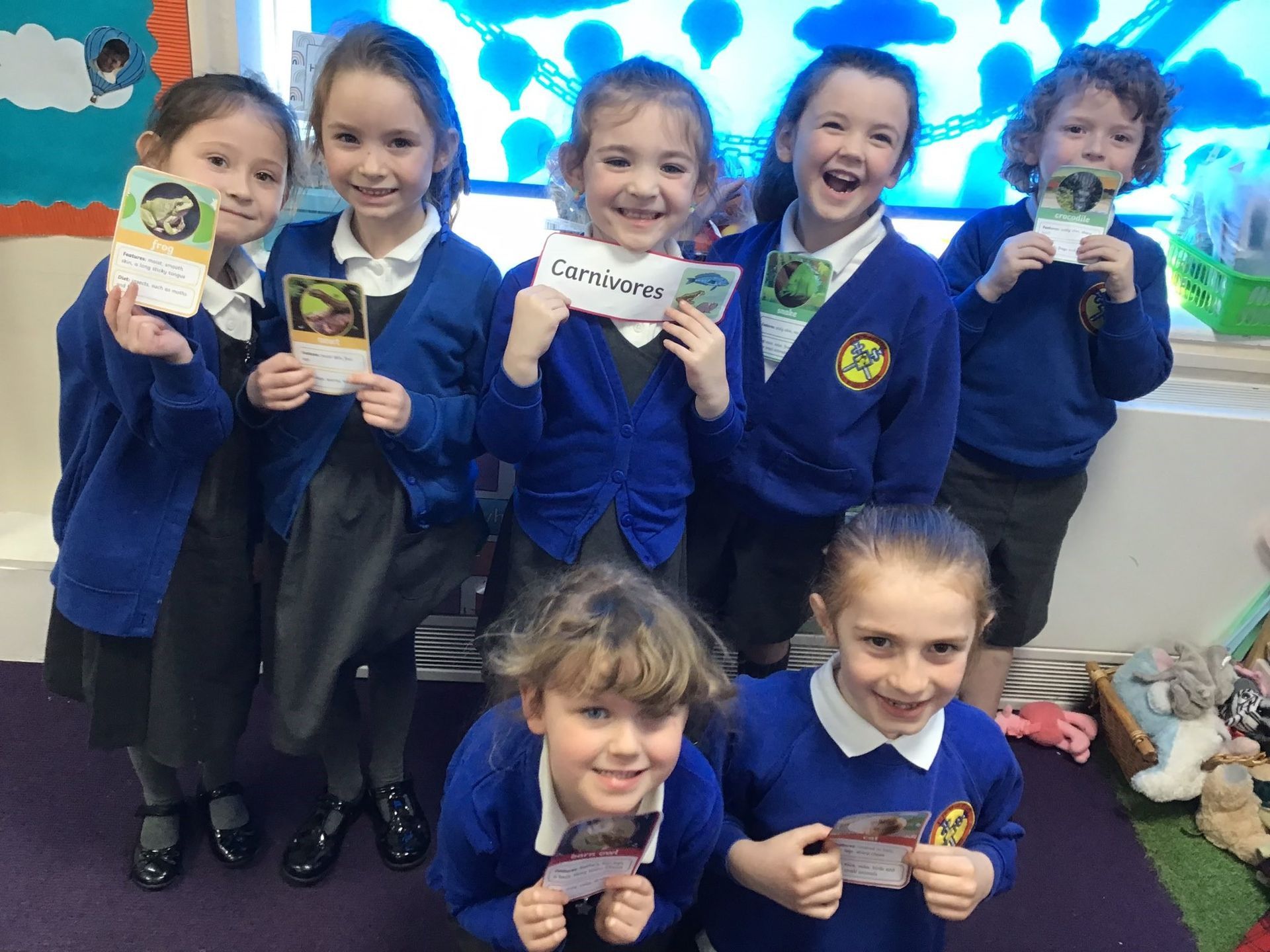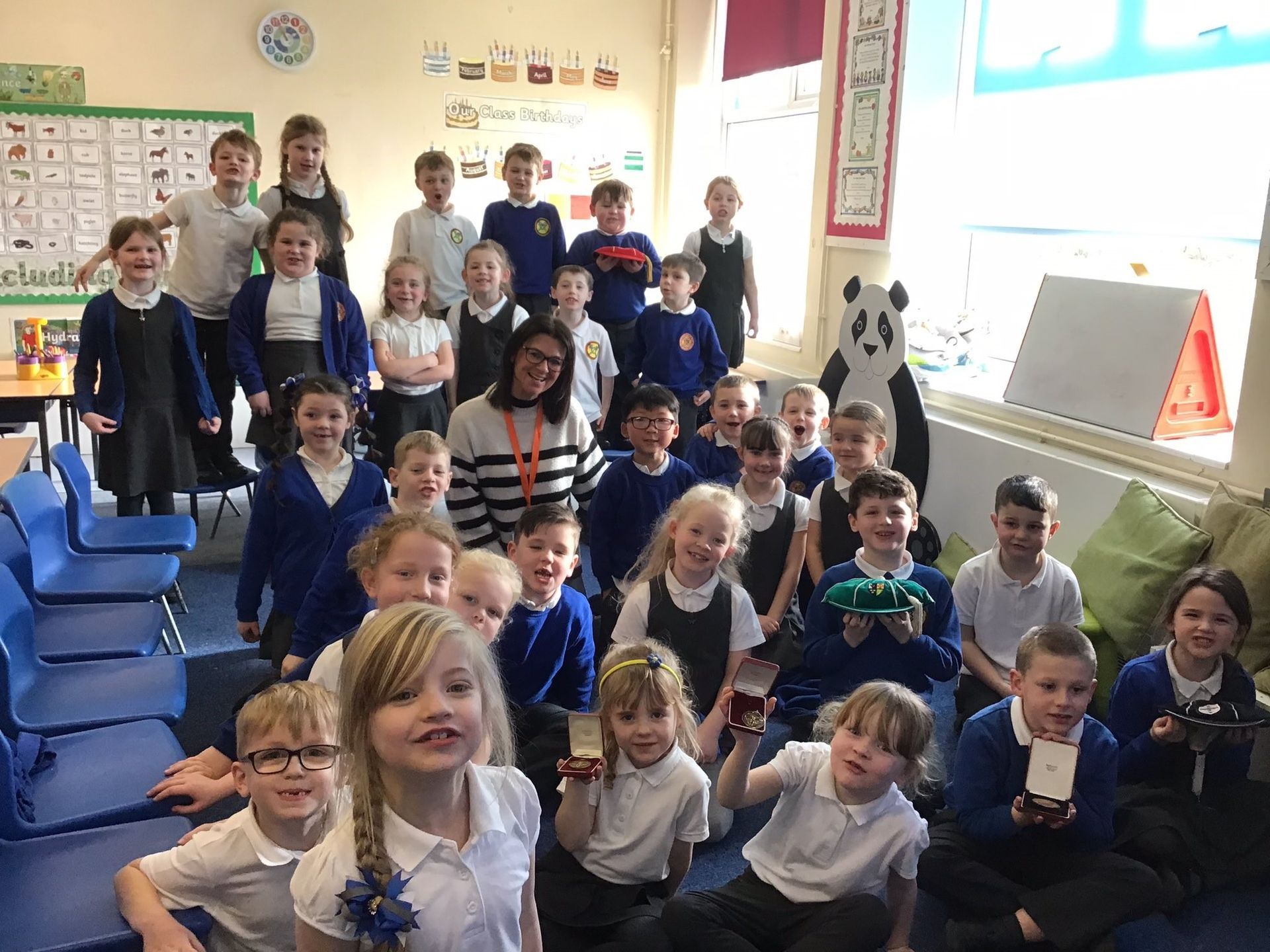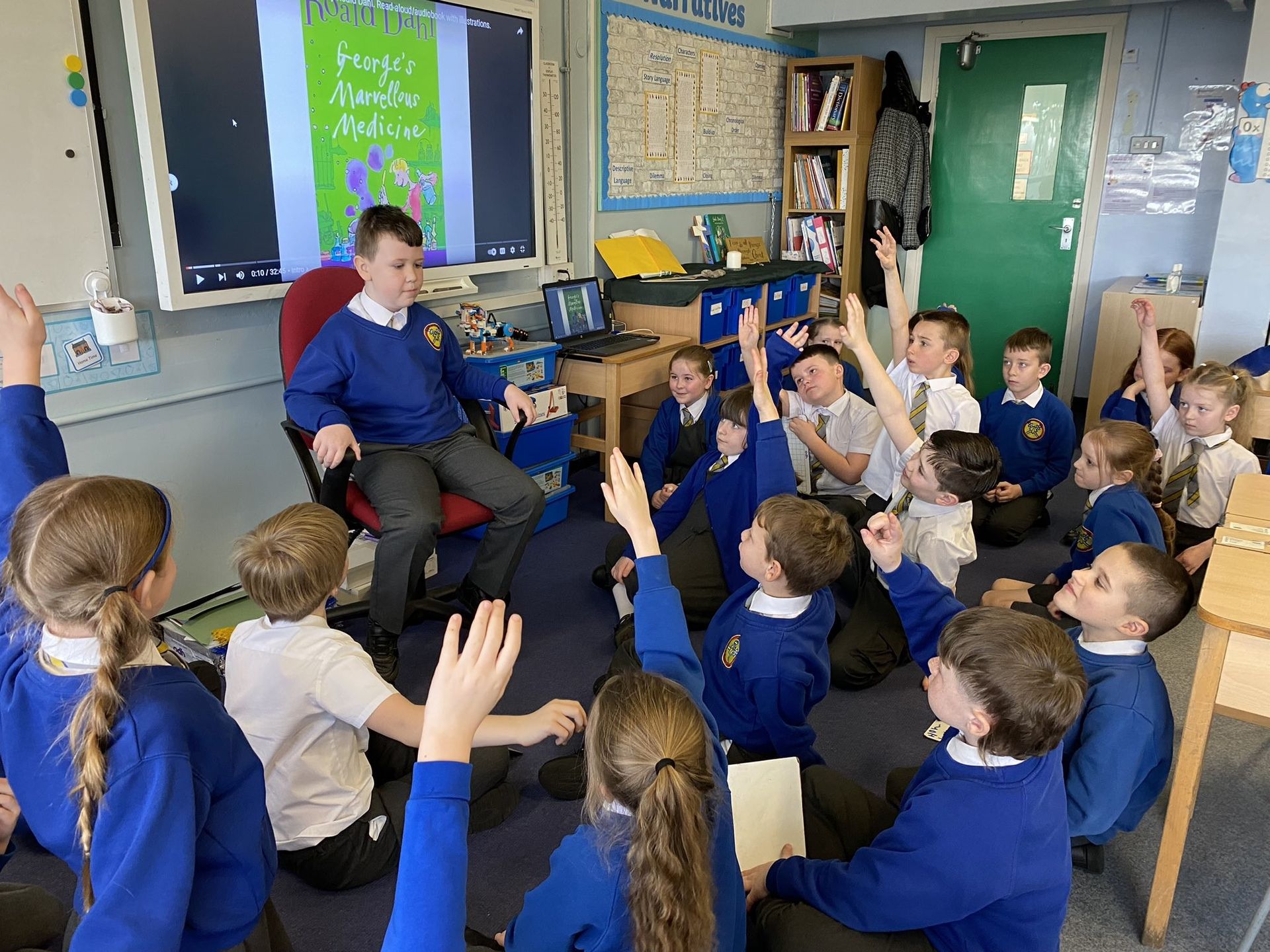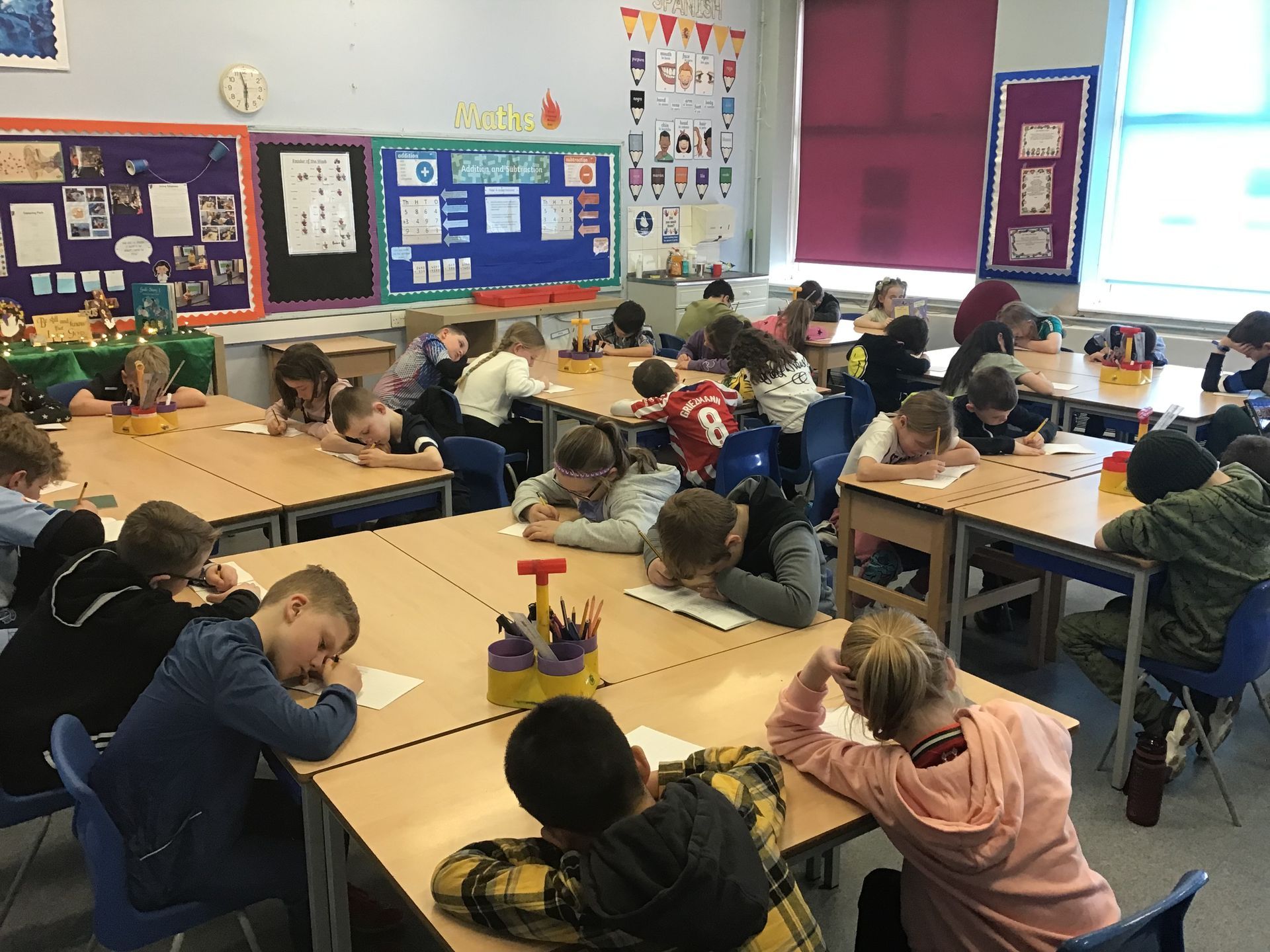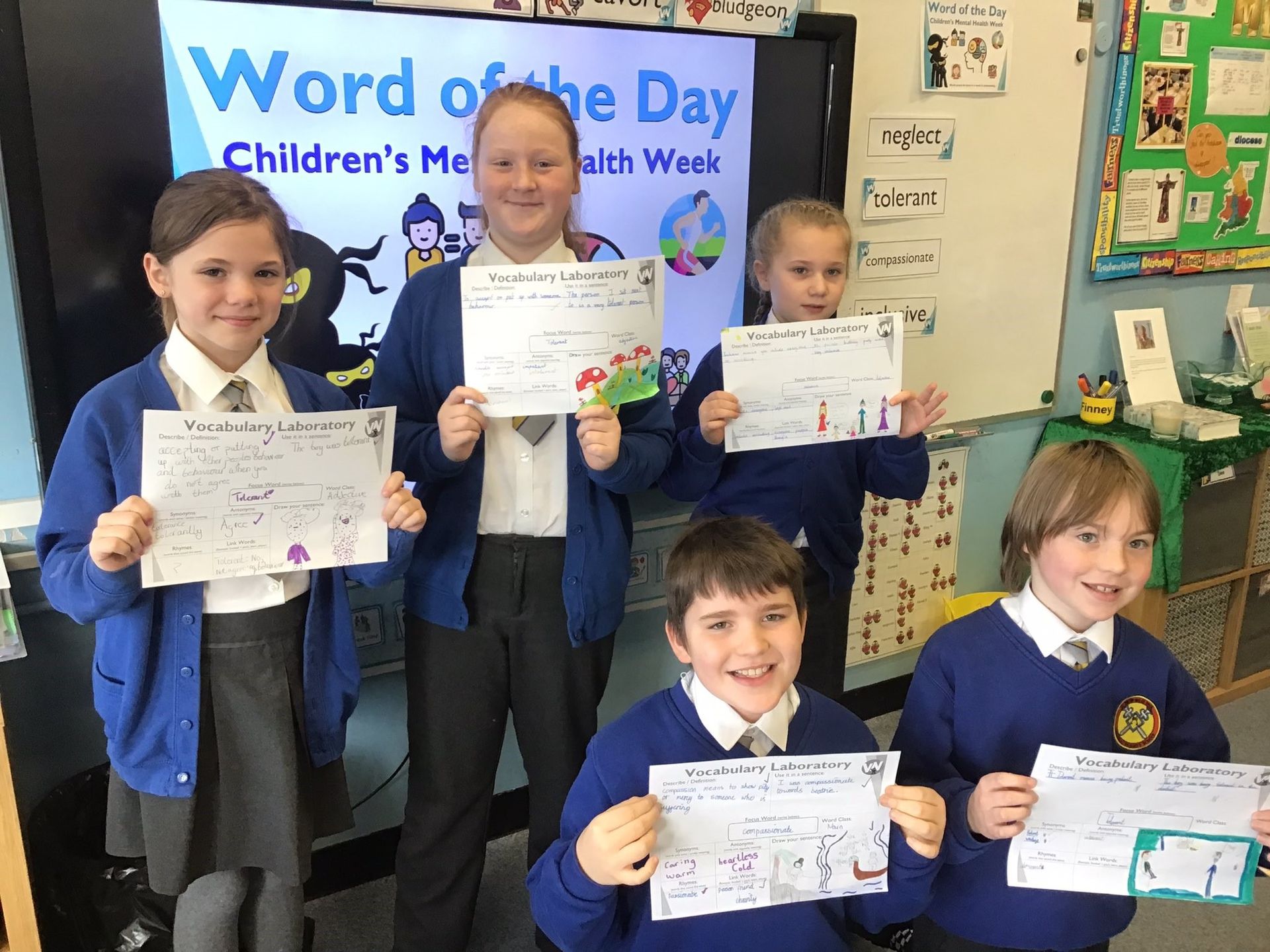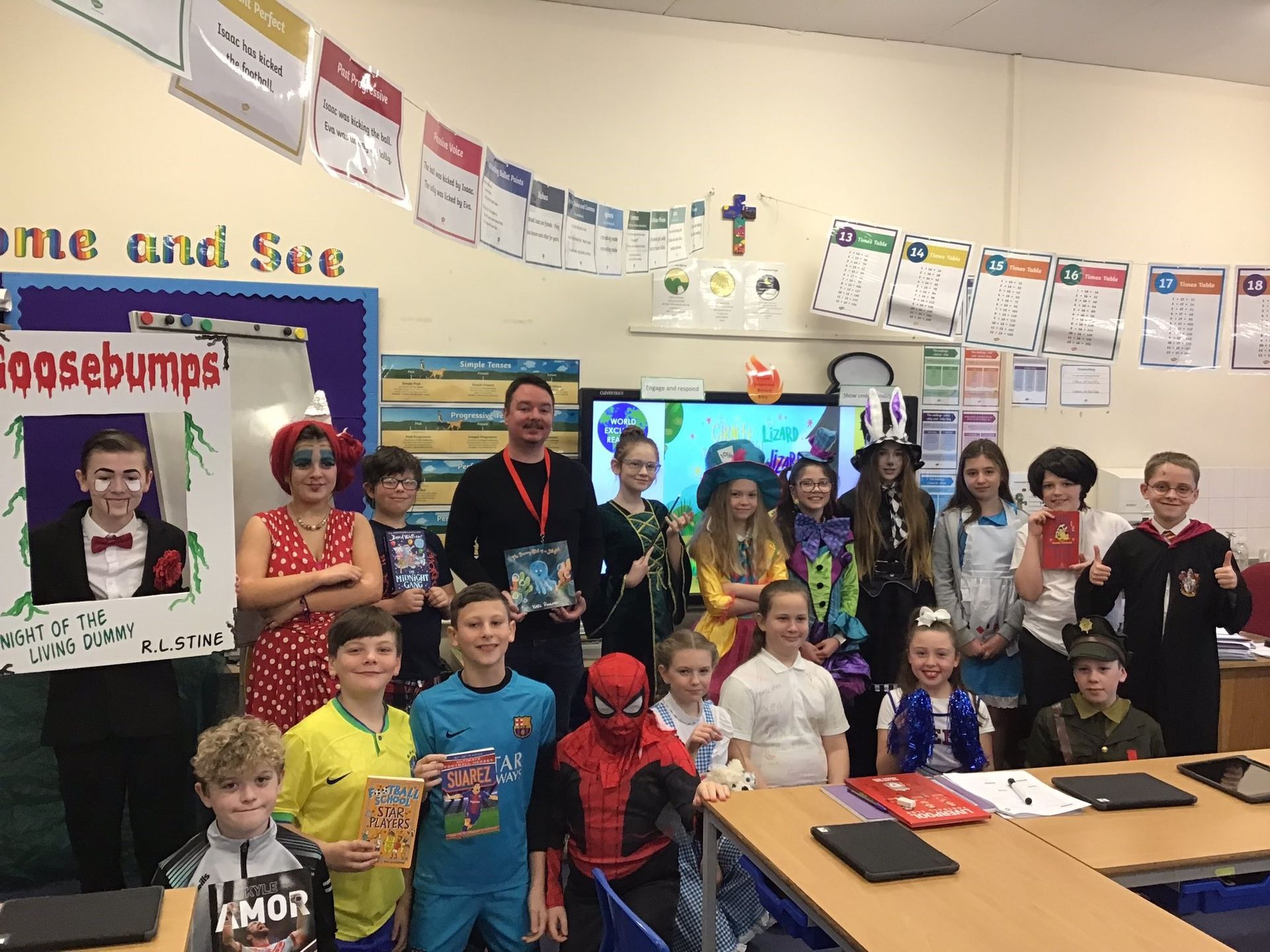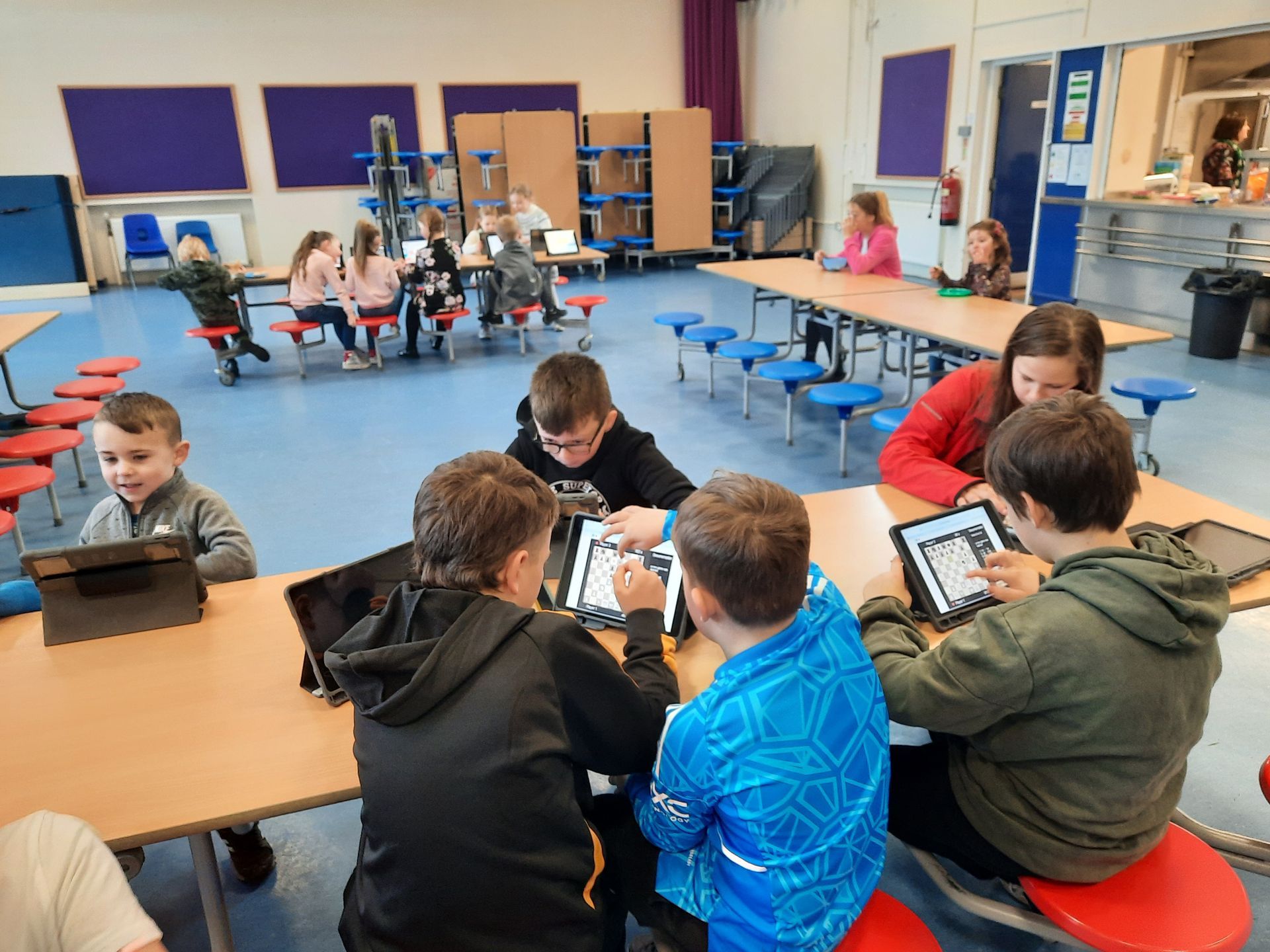ST PETER AND ST PAUL CATHOLIC PRIMARY SCHOOL
Curriculum Rationale
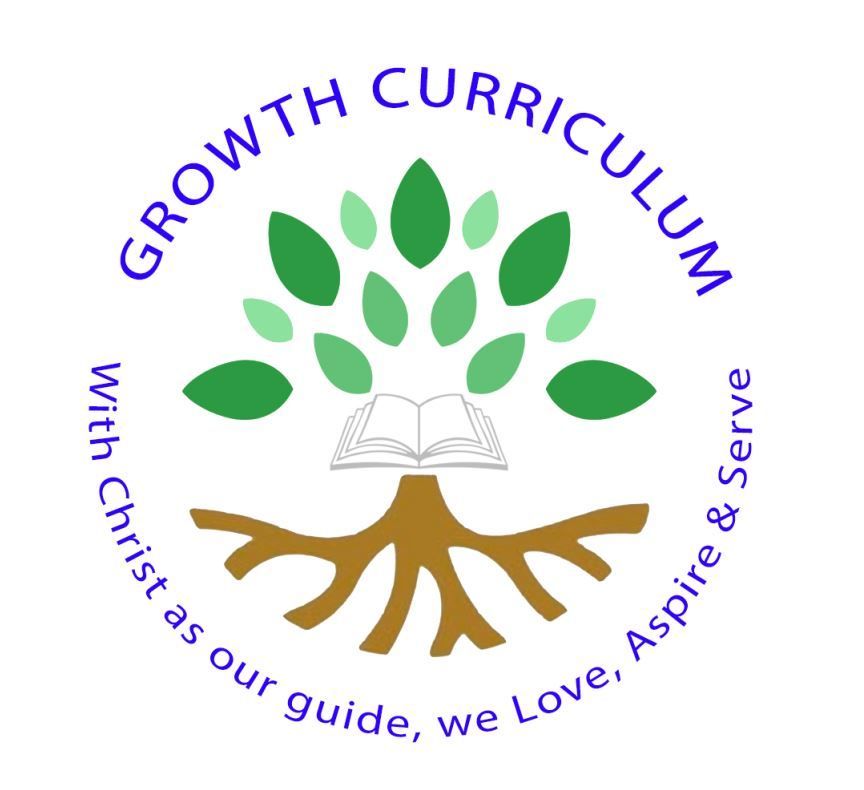
Mission Statement
'With Christ as our guide, we Love, Aspire and Serve'.
Objectives
- Mission Aim 1 (Christ Centered Aim):
Together in Christ’s family, we are loving, forgiving and compassionate to everyone.
- Mission Aim 2 (Community Centered Aim):
Together, we are welcoming and inclusive - showing respect to all.
- Mission Aim 3 (Education Centered Aim):
Together, we are ambitious and determined learners, providing an environment where everyone can flourish.
Curriculum Intent
What are the key aims and values underpinning our curriculum?
At St Peter & St Paul Catholic Primary School, we believe in providing all children with the very best teaching and learning experience so that our school’s mission statement to ‘Love, Aspire & Serve’ becomes a reality. Underpinned by our Gospel values, which form the basis of our 'Mission Aims', we aim to provide a curriculum that engages, enriches and excites our children as learners, whilst also developing their confidence, curiosity, wellbeing and resilience. We pride ourselves on having happy children who love learning through a variety of mediums and who are prepared to ‘Have a go’ at all the opportunities presented to them.
What principles underpin the delivery of our curriculum?
We firmly believe that our ability to provide our children with a broad, balanced and knowledge rich curriculum, delivered using a thematic approach were real links between subjects are valued, engages and excites all children and provides opportunities for deeper learning so that they can achieve their full potential and become future citizens we can be proud of.
Our curriculum fulfils all of the statutory requirements of the National Curriculum 2014 and much more. We aim to deliver a connected curriculum which ensures that children make progress throughout their learning journey, making links between areas of learning and ultimately between themselves and the world around them. We ensure that we explore concepts deeply and make every effort to give children the language and vocabulary to engage with learning, within the classroom and beyond. We enrich the curriculum with first-hand experiences such as trips, visits or speakers with the intention of providing knowledge and skills, as well as building aspirations for future life.
How does our curriculum develop the ‘Whole Child’?
As a school we acknowledge the importance of academic achievements and we want every child to achieve the very best that they are capable of. However, we place importance on the development of the ‘whole child’ and we want to ensure that our children grow as individuals and value their place in our community and in our rapidly changing world.
We promote British Values in all aspects of school life, (Democracy, Rule of Law, Individual Liberty, Mutual Respect and Tolerance). We also ensure that the children are aware of their rights and we promote fairness, empathy and understanding. Through our R.E. curriculum (Come and See), children learn about other faiths and how their own faith relates to the world we live in.
Our statutory curriculum is supported by a wide range of extra-curricular activities which include sport, music, dance, drama and cooking. Extra-curricular activities and providing children with opportunities to develop relationships and skills beyond our statutory curriculum is something we are incredibly passionate about and which we believe supports our children’s personal development.
Within our curriculum and throughout everything we do, we promote Christian values. Our school is a place where children and adults alike are respected and treated fairly. Each person is uniquely valued, and their gifts and potential are nurtured and developed; each member of the school knows that we belong to one ’family’ and all members accept the responsibility of caring for each other and for God’s world. Our children know that Christ is at the centre of our school community; a happy place where we ‘love, aspire & serve together’.
OUR Golden Threads
To support the development of the 'whole child', our curriculum is driven by three golden threads that provide a framework for learning and help to deepen children’s understanding of what is being taught. These threads are big, transferable ideas that have a real world meaning and help children make sense of the world around them. These threads can be revisited within and across year groups so that children can build upon their existing knowledge.
Golden thread 1: Equality and Diversity
In this thread, we develop a culture of inclusion for all, where everyone feels proud of their identify and is able to participate fully in school life. We investigate discrimination through history and encourage children to be agents of change for the better. Children address prejudice and bullying and support others to reach their potential. Children learn about the concepts of democracy and power. They develop an understanding of authority and justice. Our sports premium ensures all children have access to after school clubs and a range of sporting activities.
Golden thread 2: Ambition and Aspiration
This thread focuses on children’s own personal ambitions as well as those of others. They look at key influential people across subjects and from history and develop a key understanding of how to develop their own aspirations. Planning ensures children have opportunities to follow their own interests and develop new skills. Children learn about enterprise and through our many fundraising opportunities, develop their sense of community and service to others. Our curriculum focus weeks (such as Black History Month, British Science Week, Women's History Month) encourage ambition and aspiration through the inspiration provided by significant figures linked to these periods. This is further supported by the range of people who visit the school with different specialities, so that children can see the different role models and aspire to different careers. Our ambassadorial roles within school also allow children to develop their understanding of equality and diversity alongside developing their pupil voice. Our Pupil Premium funding allows all children to participate in a range of activities so no child is left disadvantaged.
Golden thread 3: Mental Health & Well-being
Our final thread aims to promote positive emotional mental health and well-being for our whole school community (children, staff, parents and carers), and recognise how important mental health and emotional well-being is to our lives in just the same way as physical health. We recognise that children’s mental health is a crucial factor in their overall well-being and can affect their learning and achievement.
At our school, we know that everyone experiences life challenges that can make us vulnerable and at times, anyone may need additional emotional support. We take the view that positive mental health is everybody’s business and that we all have a role to play. Our role in school is to ensure that children are able to manage times of change and stress, and that they are supported to reach their potential or access help when they need it. We also have a role to ensure that children learn about what they can do to maintain positive mental health, what affects their mental health, how they can help reduce the stigma surrounding mental health issues, children being able to talk about their emotions, and where they can go if they need help and support. We adopt the ethos that children can manage their own well-being but also support the mental health of others, and our curriculum aims to equip our children with tools and techniques that enable them to build emotional resilience.
Curriculum Implementation
In planning our curriculum, we take into account current research into the knowledge-based curriculum and cognitive learning. We have identified key knowledge throughout all of our subjects which aims to inspire pupils and promote excellent outcomes for all. This curriculum content has been carefully chosen and is organised in a coherent way, ensuring children can build on their knowledge from year to year. In this way, the knowledge in the curriculum is cumulative, constructing firm foundations from which children can progress and develop deeper conceptual understanding and subject-specific skills over time.
The strengths of the school's forensic approach to tracking individual pupil progress is based on accurate termly assessments that ensure good or better progress for the vast majority of pupils. This impacts on accelerating the rate of progress for all, including those pupils with special educational needs. Vulnerable pupils and pupils with learning difficulties are identified early and well supported through intervention programmes that are individually tailored, effectively taught, and closely monitored in terms of pupil outcomes.
In Reception, the curriculum meets the requirements of the statutory framework (EYFS) and follows the guidance from Development Matters 2021. Our KS1 & 2 curriculum is built on the National Curriculum Programmes of study for each subject area. The National Curriculum provides pupils with an introduction to the essential knowledge that they need to be educated citizens.
Our approach at school ensures coverage and progression in and across a number of curriculum areas. This approach enables learning which fosters each child’s curiosity and interest throughout each topic and enables the achievement of depth in knowledge and skills. Opportunities for child voice and evidence of initial understanding are planned at the beginning of each new topic and this is used to inform the learning for each topic to ensure relevance. The curriculum also provides children with memorable experiences, in addition to diverse and rich opportunities from which children can learn and develop a range of transferable skills.
The children’s own community, its heritage and traditions are frequently used as a starting point for engaging interest and developing cultural capital. Themes linked to the City of Liverpool, the St Helens Glass (World of Glass) Factory, St Helens Rugby League team, local fundraising initiatives and many others have enabled children to engage with the local community and enrich their learning experiences.
Curriculum Impact
We have three main intentions when it comes to measuring the impact of our curriculum.
Intention 1: To develop our learner’s learning
We strive to ensure that our children’s attainment in core and foundation subjects is in line with or exceeding their age-related expectations when we consider the varied starting points of children. We measure this carefully using a range of materials which is supported by what children have learned and what learning they have retained. We intend that the impact is that children will be academically and physically prepared for the next phase of their education and that they develop learning behaviours, so they don’t give up, are highly motivated to succeed and achieve and are equipped with all the personal skills to do this.
Intention 2: To develop the character and spirituality of our learners in line with our Christian Values
The impact will be that our learners will have fully rounded characters with a clear understanding of complex values like equality, friendship, trust and many others. Only by really learning what these mean will our learners be able to develop a character that prepares them for living in the community demonstrating tolerance and equality. We measure this not just by the work our children produce but in the behaviours we see each and every day in all learners on the playground, in the corridor, and in the many roles we give them. The impact of this intention is seen in the daily interaction of all members of our school community
Intention 3: To develop the moral compass of our learners
Our learners will be motivated by a strong personal sense of morality. They will make decisions for the right reasons and in the best interests of their community. They will be able to decide what is right and what is wrong and will be resilient to the influence of others. They will go out into the world and make a difference in their own life and to others. Our learners will be the owners of their own destinies and who aspire to be the best they can be.
ST PETER AND ST PAULS CATHOLIC PRIMARY SCHOOL
Derwent Road, Haresfinch, St Helens, Merseyside, WA11 9AT
Tel: 01744 678640
Email: stpeterpaul@sthelens.org.uk
website by
